Are two camps forming around China and the US?
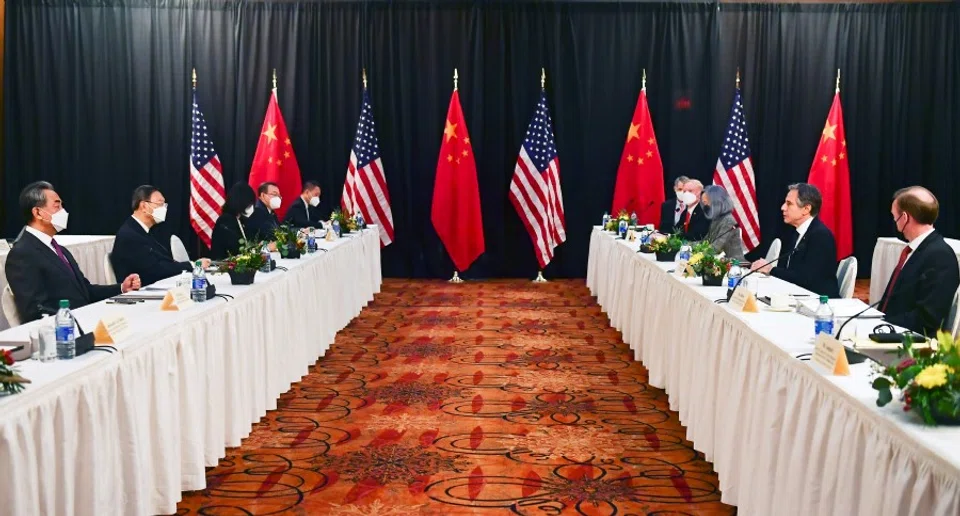
A strategic tussle has started between China and the US. The Biden administration is rallying alliances to deal with China, while China is retaliating with its partners. While it is premature to say that two camps have formed around China and the US, it seems that two main camps can be roughly identified.
The US sounds its rallying cry
First, US President Joe Biden has begun strengthening alliances. On 28 December 2020, Biden said: "As we compete with China and hold China's government accountable for its abuses on trade, technology, human rights and other fronts, our position will be much stronger when we build coalitions of like-minded partners and allies." This clearly shows that Biden is using allies to deal with China.
Not only that, Biden is setting up democratic countries against others such as China and Russia. On 4 February, in his foreign policy speech at the US Department of State, Biden said: "American leadership must meet this new moment of advancing authoritarianism, including the growing ambitions of China to rival the United States and the determination of Russia to damage and disrupt our democracy."
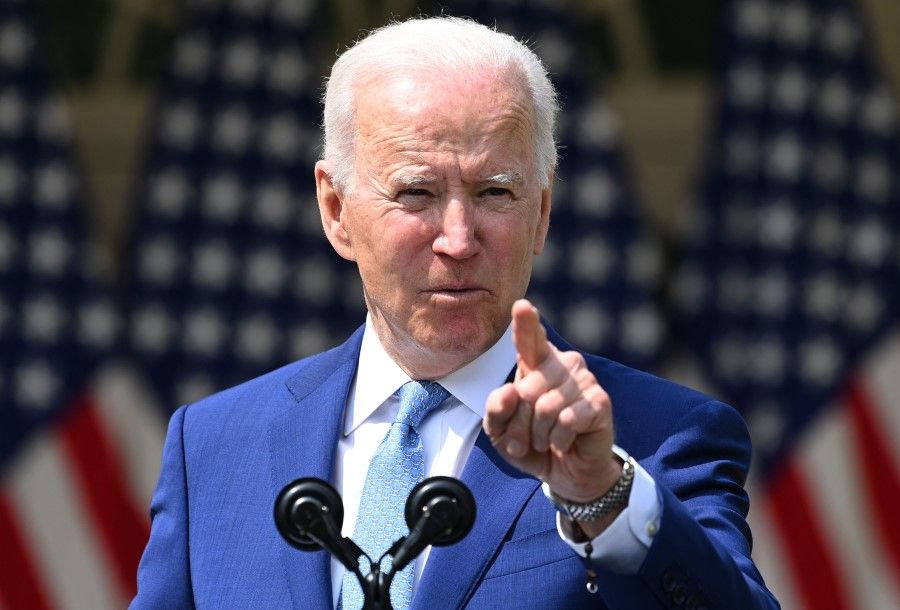
And on 19 February at the Munich Security Conference, Biden said the world is at an "inflection point" between autocracy and democracy. He said the US and its allies "must prepare together for a long-term strategic competition with China", and "defend our shared values". Then, on 25 March at his first press conference, Biden tagged the US-China competition as "a battle between the utility of democracies in the 21st century and autocracies", while US Secretary of State Antony Blinken said that China is the "biggest geopolitical test of the 21st century" for the US.
It is obvious that the Biden administration is rallying its allies around the flag of democracy and dividing the big countries through ideology. The EU is the key to the success or failure of Biden's strategy of alliance. The EU responded very quickly to Biden - on 2 December 2020, the EU released "A New EU-US Agenda for Global Change", which set out the EU's concerns about China's growing influence and that weakening transatlantic ties are good for Beijing's geopolitical aims. However, the general view is that the EU is more interested in economic interests than values.
Biden's democratic alliance is starting to show results, but it is basically those few countries that have joined this loose, non-binding arrangement that is an alliance of values.
But allies will not sacrifice economic interests
Germany is especially dependent on China economically. And on 3 December 2020, The Diplomat magazine ran a piece noting significant differences in attitudes in NATO towards China, with Turkey and Hungary closer to the Chinese government, while Italy, Greece, Portugal, and Spain more inclined to consider the benefits of trade and economic links with China rather than potential security risks. Furthermore, on 4 February, French President Emmanuel Macron said the EU should not gang up on China with the US even if it is closer to Washington in terms of shared values.
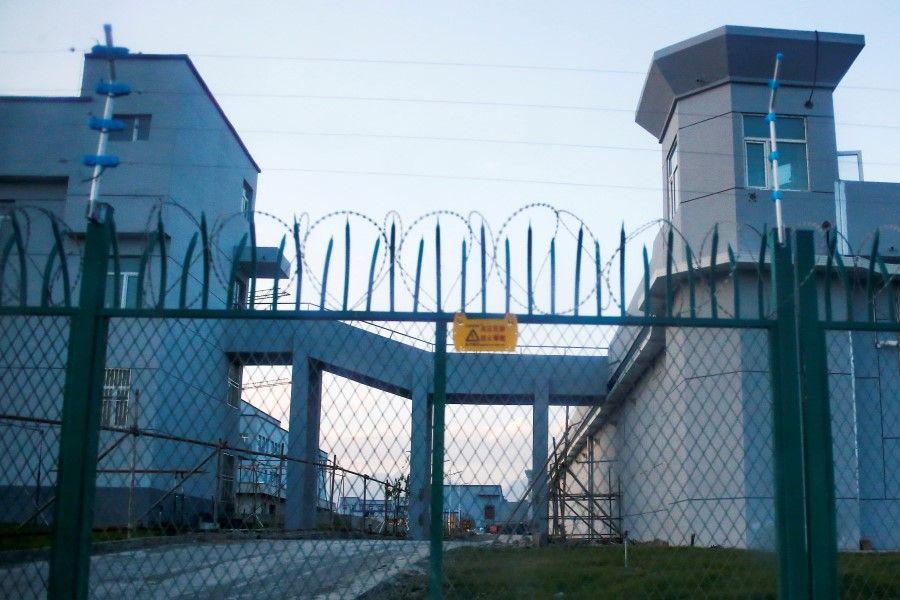
Surprisingly, on 22 March, the EU imposed sanctions on China officials over the Xinjiang issue. Does this have something to do with Blinken attending a meeting of NATO foreign ministers and holding talks with EU chiefs around that time? There is no evidence of this, but the EU's actions seem at least in sync with the Biden administration. On 22 March, the foreign ministers of the US, Canada, and the UK released a joint statement on the Xinjiang issue; that same day, the foreign ministers of New Zealand and Australia also released a similar statement. The timing was definitely not a coincidence. And in early April, Turkey also got embroiled in the Xinjiang issue, while Japan expressed its views on Xinjiang and Hong Kong.
Biden's democratic alliance is starting to show results, but it is basically those few countries that have joined this loose, non-binding arrangement that is an alliance of values. Those in the alliance still want to develop trade ties with China, and even the US does not think that it can completely decouple with China. The democratic alliance is also not a military alliance targeting China, for countries in the alliance do not think China poses a military threat to them. It is questionable how much impact this alliance will have on China, because a shift from ideological opposition into economic and trade isolation would not be feasible. As long as China's economy continues to grow, it will continue to remain attractive to those in the alliance.
China seeks closer ties with Russia and Iran
Second, recent interactions between China and countries such as Russia and Iran have sparked speculation about whether China and Russia are forming another camp to counter Biden's democratic alliance. China cannot just sit and wait to be isolated. The high-level meeting between China and the US in Alaska was a milestone, for several reasons.
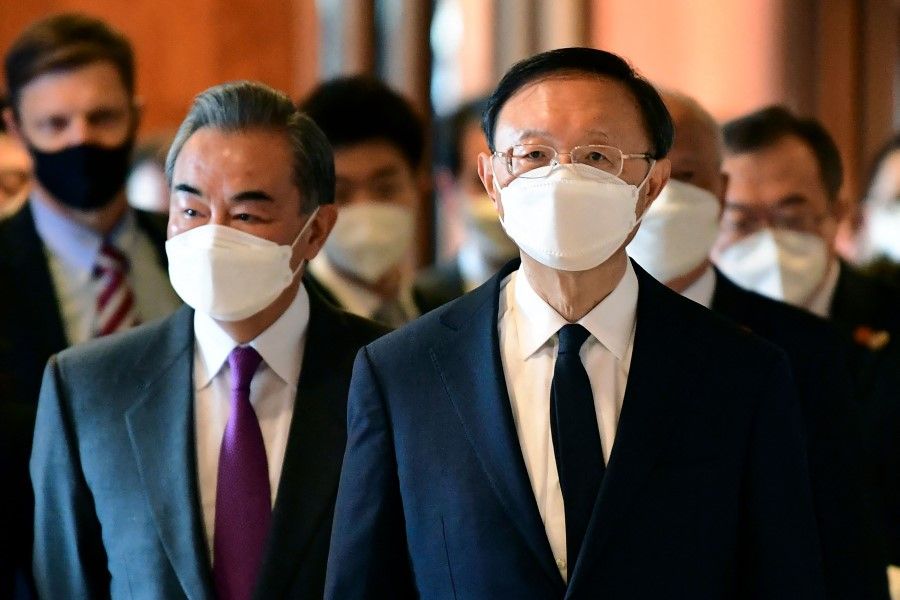
Point one: China no longer accepts the US-led international order, and Russia supports this stand. At the Alaska meeting, China declared to the world that it does not accept the rules-based international order led by a handful of countries. While China did not name the US, its meaning was clear. This formal announcement by the Chinese government changes what it repeatedly declared before about not wanting to change the US or take its place.
Following the meeting, the Chinese and Russian foreign ministers released a joint statement that said: "All states, without exception, should make efforts to maintain the inviolability of the international relations system, in which the United Nations plays a central role, and of the world order formed in accordance with international law." This is what China's top diplomat Yang Jiechi said to Blinken face to face. That Russia took in what China said about the international order shows that Russia stands with China, which has naturally sparked speculation again that China and Russia are allies.
Developing relations with Russia has allowed China to counter some losses caused by Western sanctions. Chinese companies provide an alternative to Western technology and help to implement major infrastructure projects.
Point two: China-Russia cooperation would be a strong force against the US, and a partnership between China and the Western-oppressed Russia is a definite option. And although China and Russia differ in ideology, they have a common opponent - the US. Russian geopolitical commentator Aleksandr Dugin once said to Chinese journalists that China and Russia have changed the international system - China through economics, and Russia through strategy. He believed Russia should support China in terms of strategy and resources while China helps Russia economically; together both countries can stand against the West.
Western economic and financial systems have blocked Moscow's access to Western technology and funds, so that its economic growth is slow and it lags behind in modernisation. Incomes are down and people's lives are difficult, and unhappiness is growing. Developing relations with Russia has allowed China to counter some losses caused by Western sanctions. Chinese companies provide an alternative to Western technology and help to implement major infrastructure projects. China has also sent cash to Russia, lightening the negative impact of sanctions on Russia.
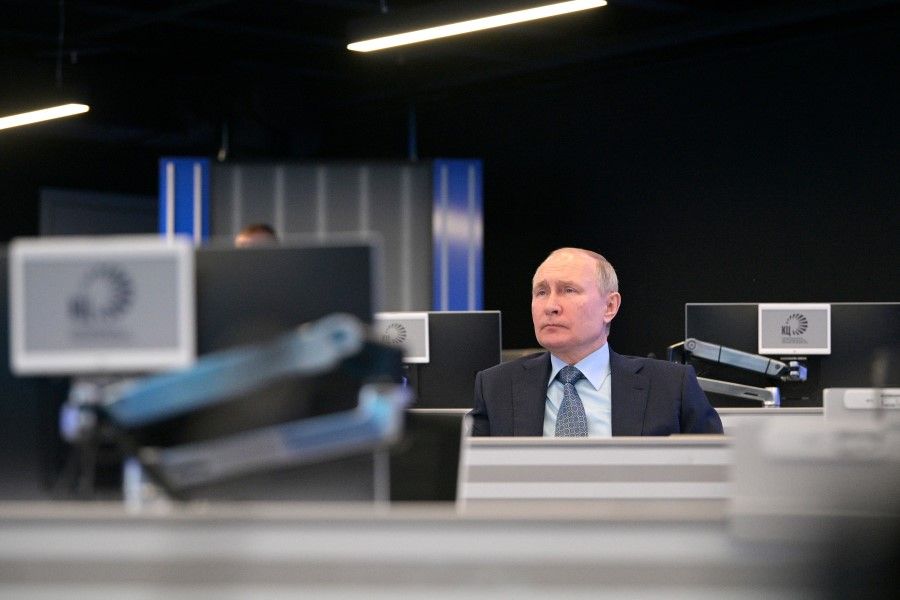
Deepening military cooperation between China and Russia is especially important in balancing the US. According to reports in the Daily Mail and The Sun, Russia has 6,375 nuclear warheads, and China's estimated 290 would make a total of around 6,665; that is, 865 more than the US's 5,800. Russia and China have a combined total of about 3.2 million active duty troops, over twice as many as the US's 1.4 million, with three times as many tanks and warships as the US. The armed forces of China and Russia have also held joint exercises, and Russian President Vladimir Putin has admitted that Russia has provided China with cutting-edge military technologies.
Point three: China's deepening ties with Iran have also become a factor in countering the US. After the Alaska meeting, China's Foreign Minister Wang Yi headed to six countries in the Middle East, including Saudi Arabia and Iran. On 27 March, China and Iran signed an economic and security agreement - according to the New York Times, China agreed to invest US$400 billion in Iran over 25 years in exchange for a steady supply of oil. Wang also revealed that China and Iran will also begin military cooperation, but did not go into detail.
Two camps coalescing around China and the US?
China's recent diplomatic moves have got Western media thinking that two camps are forming around China and the US. The New York Times ran an article titled "An Alliance of Autocracies? China Wants to Lead a New World Order." (The title in Chinese actually reads "An Alliance of Autocracies vs an Alliance of Democracies?") The article noted: "President Biden wants to forge an 'alliance of democracies.' China wants to make clear that it has alliances of its own." It added: "The threat of a United States-led coalition challenging China's authoritarian policies has only bolstered Beijing's ambition to be a global leader of nations that oppose Washington and its allies."
Final point: whether the two camps take shape depends on the interactions between many trilateral relationships, and not just China-US relations, but also the competition between major players such as the EU, Russia, the UK, and Japan, with the main elements being China-US-Europe and China-US-Russia trilateral interactions.
The EU is moving closer to the US, but has not forgotten the China market; conversely, it is passé for China to hold on to the EU with economic benefits alone.
The China-US-Europe relationship is a catalyst for the formation of the two camps. The EU is a target for both China and the US, and if the EU tilts towards China, the US's alliance of democracy will fall through. But if China-Europe relations go sour, the EU will tilt towards the US. Antoine Bondaz of the Foundation for Strategic Research told the media that the mutual sanctions and attacks between China and Europe had led to more topics of consensus between Europe and the US, and also tweeted his displeasure with the Chinese embassy in France criticising plans for a visit to Taiwan by a French senator.
Friendly overtures from the US to the EU would tilt the EU towards the US. On 5 March, the US and Europe agreed to a four-month suspension of mutual tariffs worth billions of US dollars, which were imposed in a dispute over subsidies provided to airplane manufacturers Airbus and Boeing. The EU is moving closer to the US, but has not forgotten the China market; conversely, it is passé for China to hold on to the EU with economic benefits alone.
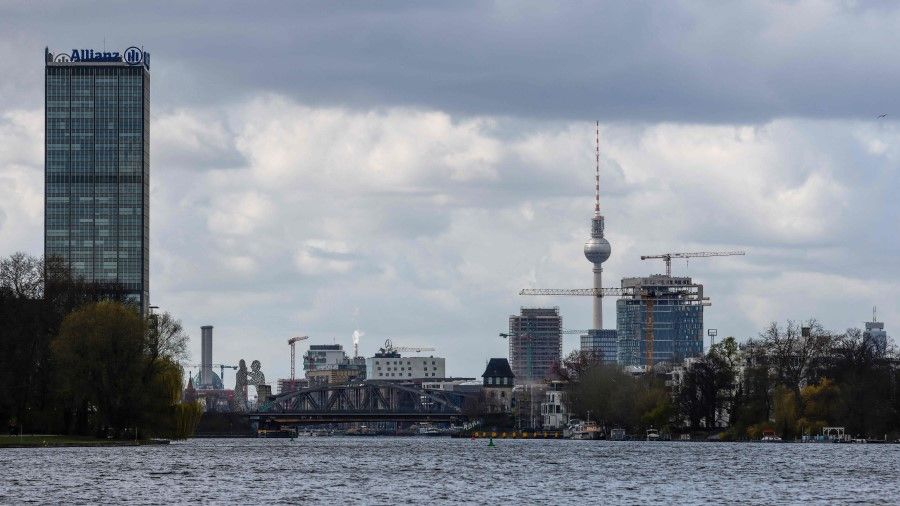
The China-US-Russia triangle would also stimulate the formation of the two camps. Due to historical baggage, the time is not ripe for China and Russia to form an alliance. There are no clauses of alliance between the two; however, the important thing is that they have common interests when it comes to the US.
According to the Foreign Affairs article "US-Russian Relations Will Only Get Worse", as long as Putin is in power, the regime in Moscow will continue to be threatened by the spread of democracy, and democracy is precisely what Biden is advocating. Putin has signed a law that allows him to continue as President for another two terms, which means he can stay in office until 2036, which in turn means that it is unlikely that US-Russia relations will improve in the next four years. The US pushing Russia towards China while isolating and containing China will only make a China-Russia alliance more likely.
As things stand, it is not likely that two camps will form. The important thing is that the EU does not want to stand against China, while the UK, Australia, and Canada with their tense relations with China also hope to develop trade ties with China, as does Japan, even as they gradually take a tough stance towards China. Russia and China also have no intention of becoming military allies against the US. While Biden's democratic alliance will damage China's soft power, a China-Russia partnership would also be a deterrent to the US.
